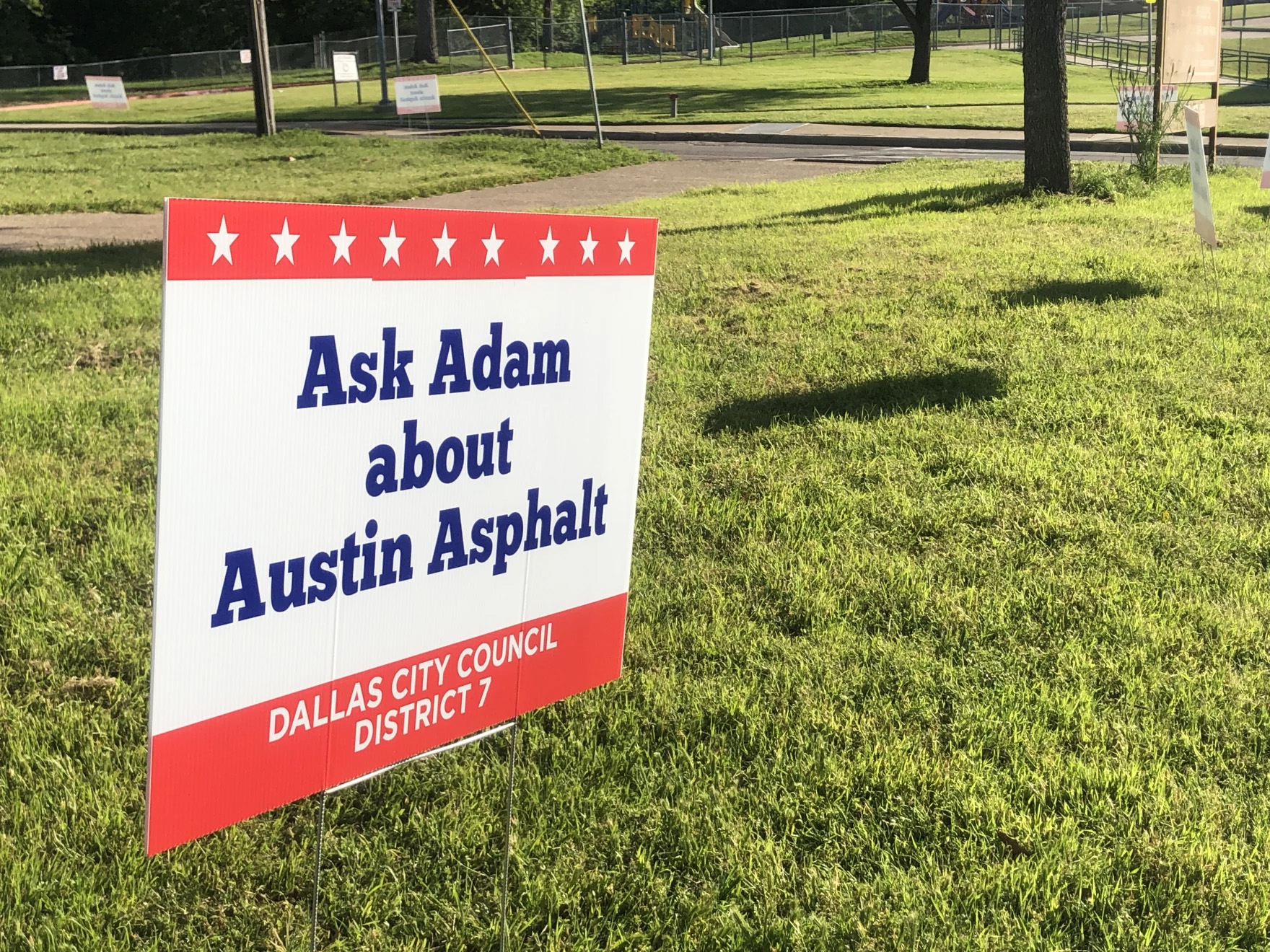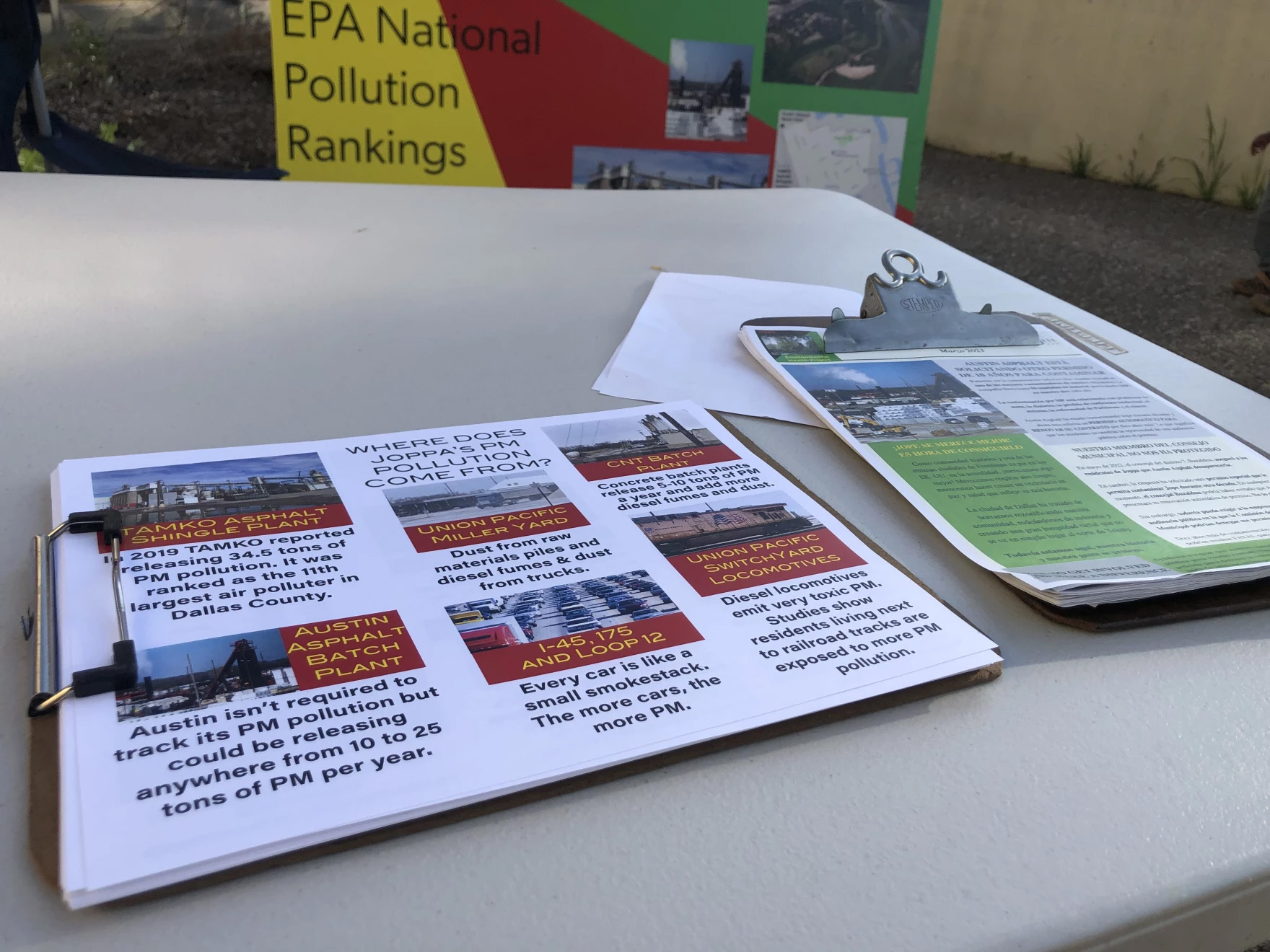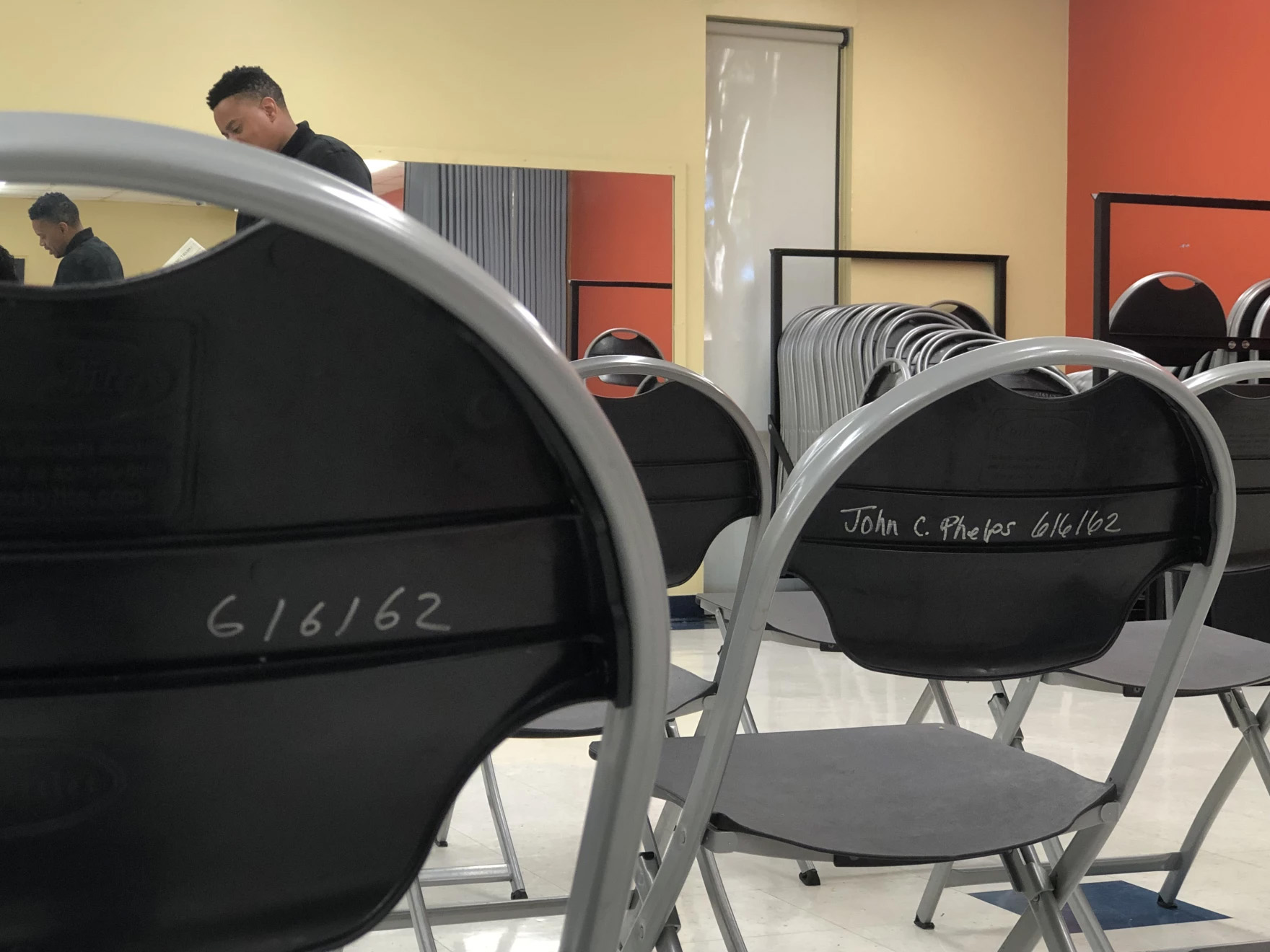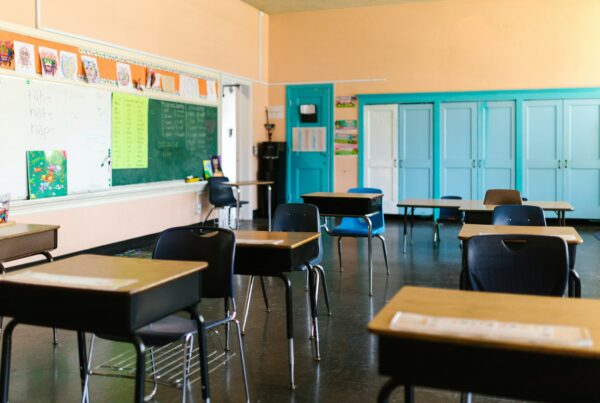From KERA:
A “Joppa community meeting” was billed as a chance to get information about the status of a controversial asphalt plant that residents say has long polluted the air in the predominately Black community.
But what happened was something very different.
Dallas officials and community members shouted over each other as accusations flew.
One Dallas official accused residents of harassing her on social media and told the crowd that she needed to see evidence of pollution in the area. Another complained that at least one advocacy group in Joppa didn’t want to work with city staff.
Residents angrily suggested that plenty of evidence documenting pollution — and potential health risks — was available to city staff. They claimed they’d been kept in the dark about when the plant may — or may not — shut down. And they wanted to know why city officials have not held a public hearing on the plant’s permit to continue operations.
Some residents walked out midway through the event. Those who stayed say they had no more information after the meeting, than before.
The recent gathering was just the latest in many attempts to find some common ground over the decades-old asphalt plant. But if that was the intent, it appeared that the effort fell short — with no hint of when, or if, a public hearing might be held.
City officials told Joppa residents a public hearing should “always be the last resort.”
Alicia Kendrick heads the Joppa Environmental Health Project. Her community group is aimed at educating her neighbors about the health impacts of industries in the community — like the asphalt plant operated by Austin Bridge & Road. That’s part of Austin Industries, which is described as one of the nation’s largest construction companies.
She says she’s disappointed at what happened Thursday evening — all she wants are answers for her community and her 2-year-old daughter.
“If she has to sit in ten more years of polluted air, what happens to her?” Kendrick said. “How do her lungs develop versus her white peers in Plano?”















